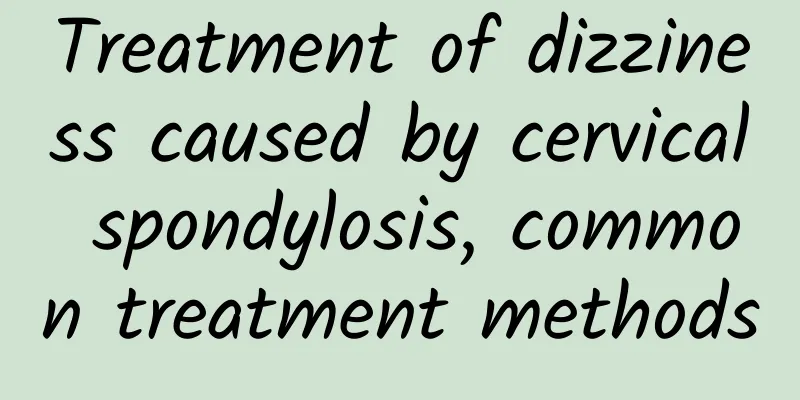Is acute gastric mucosal lesion serious?

|
Acute gastritis is generally more serious, and patients will feel special pain during the attack, and even need emergency treatment when necessary. Compared with chronic gastritis, acute gastritis is more likely to cause gastric mucosal damage. During the treatment process, gastric bleeding may also occur. Therefore, for an important organ like the stomach, we should take precautions before it happens. So are acute gastric mucosal lesions serious? Acute gastric mucosal lesions (AGML) are characterized by varying degrees of erosion, shallow ulcers and bleeding in the gastric mucosa. Patients with acute mucosal erosion as the main lesion are called acute erosive gastritis; patients with mucosal bleeding as the main change are called acute hemorrhagic gastritis; patients occurring in a stress state and with multiple ulcers as the main lesion are called stress ulcers. Although the causes of the lesions in this group are different, their pathogenesis, pathology, clinical manifestations, and treatment are similar, so they are discussed together. This disease is one of the common causes of upper gastrointestinal bleeding. Oral gastric mucosal barrier disruptors are the primary cause of acute gastric mucosal lesions, which often manifest as upper gastrointestinal bleeding. Gastroscopy is the preferred method for diagnosing this disease. 1. Medication A variety of drugs, the most common of which are non-steroidal anti-inflammatory drugs, such as aspirin, which is non-ionic and relatively fat-soluble in an acidic environment. It can destroy the lipoprotein layer of gastric mucosal epithelial cells, weaken the mucosal barrier and cause hydrogen ions to reversely osmose into the mucosa, causing inflammatory exudation, edema, erosion, bleeding or shallow ulcers. For example, adrenal cortical hormones can cause "steroid ulcers" or even perforation, which is related to increased secretions of gastric acid and protease, decreased secretion of gastric mucus, weakened mucosal barrier, and inhibition of gastric epithelial cell regeneration. 2. Alcoholism Ethanol can dissolve the epithelial lipoprotein layer on the gastric mucosa, or ethanol can damage the mucous neck cells of the glands through the bloodstream, reducing gastric mucus, both of which can cause damage to the gastric mucosal barrier. The common cause of this disease is acute gastric mucosal erosion and bleeding caused by excessive drinking. Clinical manifestations Upper gastrointestinal bleeding is its most prominent symptom, which can manifest as vomiting blood or black stools. Its characteristics are: 1. Have a history of taking related drugs, alcoholism, or diseases that may cause stress. 2. The onset is sudden, with sudden vomiting of blood and black stools. It may occur hours or days after a stressful event. 3. The amount of bleeding is large and may be intermittent and repeated, often leading to hemorrhagic shock. The onset of the disease may also be accompanied by upper abdominal discomfort, burning sensation, pain, nausea, vomiting and acid reflux. |
<<: The most common valvular lesions in rheumatic heart disease are
Recommend
How does Traditional Chinese Medicine treat antral gastritis?
Antral gastritis is a very terrible disease. It m...
Breakfast pancake recipes
Pancakes are a common breakfast. Many people like...
Symptoms of first menstruation after medical abortion
Generally speaking, as long as the female body re...
Smoking to treat mouth ulcers
Many people believe that smoking can cure oral ul...
Rhinitis treatment
Rhinitis is a stubborn disease. Although it is no...
What is the principle of cupping?
As we all know, cupping is a treatment method in ...
Anti-tumor Chinese herbal medicine
Some Chinese herbal medicines are quite effective...
What tea can clear the lungs, reduce phlegm and relieve cough?
Usually, colds or bronchitis and other diseases o...
Side effects and toxicity of Cyperus rotundus
Cyperus rotundus is the name of a traditional Chi...
Treatment of thyroid nodules by an experienced Chinese doctor
Because thyroid nodules involve almost all thyroi...
Puerperal infection, symptoms and signs to know
Puerperal infection is an infection caused by bac...
Self-regulation methods for male menopausal anxiety
Men will also have certain anxiety problems when ...
What to do if your face turns black after a burn
Some people get burns on their faces due to carel...
How to whiten your whole body, learn these 7 tips
As the saying goes, a white complexion can hide a...
Are red dots a sign of stretch marks?
For pregnant women, they are still quite worried ...









